 Bizet - Carmen (Mcvicar, Jordan, Lpo, Von Otter) | DVD | (12/02/2003)
from £9.60
| Saving you £20.39 (212.40%)
| RRP
Bizet - Carmen (Mcvicar, Jordan, Lpo, Von Otter) | DVD | (12/02/2003)
from £9.60
| Saving you £20.39 (212.40%)
| RRP 'Carmen' is here restored to the original Opera Comique in a production from Glyndebourne. Music is under the direction of Philippe Jordan.
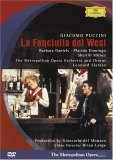 La Fanciulla Del West - Puccini | DVD | (15/08/2005)
from £N/A
| Saving you £N/A (N/A%)
| RRP
La Fanciulla Del West - Puccini | DVD | (15/08/2005)
from £N/A
| Saving you £N/A (N/A%)
| RRP Giacomo Puccini's 'La Fanciulla del West' a stage production by The Metropolitan Opera 1992.
 Steaming Around Britain` | DVD | (17/03/2008)
from £N/A
| Saving you £N/A (N/A%)
| RRP
Steaming Around Britain` | DVD | (17/03/2008)
from £N/A
| Saving you £N/A (N/A%)
| RRP The complete regional guide to steam railways past and present
 Ponchielli: La Gioconda | DVD | (05/11/2001)
from £N/A
| Saving you £N/A (N/A%)
| RRP
Ponchielli: La Gioconda | DVD | (05/11/2001)
from £N/A
| Saving you £N/A (N/A%)
| RRP The Vienna State Opera's 1986 production of La Gioconda, Amilcare Ponchielli's only lasting success, was an increasingly rare event. The story--based on a long forgotten Victor Hugo drama--is an emotional roller coaster of high passion and self-sacrifice, but has fallen out of favour with the major international opera companies; instead, Ponchielli's contemporary Verdi and one-time pupil Puccini are today's guaranteed crowd-pullers. This is a shame. Ponchielli's score might be sumptuous to the point of occasional over-ripeness but it contains some marvellous arias, not least Enzo's "Cielo e mar". And whenever La Gioconda herself is on stage, it's hard not become enthralled by the richness of her suffering as painted by Ponchielli's lush, explosive music. Here is a woman who is given every opportunity to ensure the removal of her rival (Laura) for Enzo's affections, but who always does the decent thing, ultimately leaving herself with a stark choice between suicide and the repulsive paws of the evil Barnaba who has pursued her since Act I. As La Gioconda, Hungarian soprano Eva Marton is utterly compelling. It's a role that places extraordinary emotional demands on the singer (Callas, not surprisingly, had a field day with it). Marton maintains total credibility. In voice, she is well matched by Placido Domingo's Enzo, who is at the virile peak of his vocal powers, rather suggesting a strength that the suggestible Enzo doesn't really possess. But perhaps the strongest aspect of Ponchielli's opera is the way in which the vocal jewels are distributed throughout the cast. Ludmilla Schemtschuk is an elegant Laura and Margarita Lilowa as La Gioconda's blind mother, La Cieca, sings an unforgettable "Voce di donna o d'angelo". And the ballet within the opera, the "Dance of the Hours", assumes its rightful place as a gleaming component of the whole work. On the DVD: Originally filmed for television, this La Gioconda is presented in PCM Stereo with 4:3 picture format, neither of which do the overall quality any favours. The sound is uneven; when the singers turn upstage it is sometimes impossible to hear what they are singing and the orchestra, conducted by Adam Fischer, sounds dull. The colours are muted. And while the booklet provides the customary comprehensive notes we have come to expect from Arthaus products, it is surprising that the cover photograph is not of the magnificent Eva Marton in the title role.--Piers Ford
![Strauss: Elektra [1989]](/pictures/1028793.jpg) Strauss: Elektra | DVD | (03/07/2000)
from £N/A
| Saving you £N/A (N/A%)
| RRP
Strauss: Elektra | DVD | (03/07/2000)
from £N/A
| Saving you £N/A (N/A%)
| RRP Richard Strauss's wildest and most passionate opera gets an almost ideal performance in this 1989 production with three great female singers at the height of their powers. Marton is terrifyingly unreasonable as Elektra, determined to mourn her dead father in the face of her mother who had him killed, and to hope and pray for the vengeance that her brother will one day bring. Told he is dead, her emotional collapse is equally total, and her eventual self-destructive dance of triumph is a bittersweet ecstasy of anger and joy. Studer gives the sometimes underplayed role of the normal, compromising "feminine" sister the weight and sympathy Strauss intended it to have. Fassbaender is electric as Clytemnestra, collapsing under the weight of her guilt and paranoia, but still scarily sexy and regal in her manipulation of those around her. Abbado's conducting is electric--from the opening "Agamemnon" chords to the final dying fall of Elektra's dance, he never puts a foot wrong or misjudges the pacing of this most difficult of opera scores. The DVD has subtitles in English, German and French. --Roz Kaveney
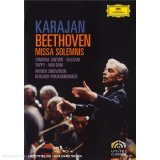 Beethoven - Missa Solemnis | DVD | (04/02/2008)
from £15.04
| Saving you £1.95 (11.50%)
| RRP
Beethoven - Missa Solemnis | DVD | (04/02/2008)
from £15.04
| Saving you £1.95 (11.50%)
| RRP Beethoven's Missa Solemnis from the 1979 Salzburg Easter Festival.
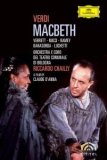 Verdi - Macbeth | DVD | (22/10/2007)
from £24.99
| Saving you £-3.00 (N/A%)
| RRP
Verdi - Macbeth | DVD | (22/10/2007)
from £24.99
| Saving you £-3.00 (N/A%)
| RRP Verdi Macbeth
![Il Trovatore - Verdi [1978]](/pictures/1028081.jpg) Il Trovatore - Verdi | DVD | (24/09/2004)
from £7.76
| Saving you £23.49 (361.38%)
| RRP
Il Trovatore - Verdi | DVD | (24/09/2004)
from £7.76
| Saving you £23.49 (361.38%)
| RRP Recording of the Verdi opera from the Wiener Staatsoper in 1978 with Herbert von Karajan conducting.
![Carmen [2003]](/pictures/1028405.jpg) Carmen | DVD | (12/02/2003)
from £26.95
| Saving you £3.04 (11.28%)
| RRP
Carmen | DVD | (12/02/2003)
from £26.95
| Saving you £3.04 (11.28%)
| RRP All too often Bizet's great comic opera Carmen has been pared down to its basic bodice-ripping components, leaving its adored melodies with only torrid clichés to cling on to. Nothing of the sort happens here. David McVicar's 2002 production for Glyndebourne restores it to its rightful place as a stupendous musical entertainment. Bold, lusty, tightly directed and designed in sanguine shades of red and black, this Carmen spills and bustles across the stage and out of the screen like a living painting. At first glance, Anne Sofie von Otter is not an obvious choice for the title role, but just look at how she seizes and inhabits the character, wrenching her from the jaws of dark, sultry stereotype and rendering a complex modern woman. Her Carmen both revels in and is tormented by the ripe sexuality that fascinates her lovers and sets her apart from the other women. Von Otter's interpretation suggests it has its roots in a hinterland of wretched, bitter experience; the "Habanera", the "Gypsy Song" and the "Seguidilla" become multi-layered expressions of hope and desire: we never forget that for all its gusto, Carmen ends up a tragedy. And the men aren't ciphers. Laurent Naouri's proud Escamillo and Marcus Haddock's immature, damaged Don José are rounded, richly sung characters. So too, is Lisa Milne's touching Micaëla. All told, this Carmen is full-length, fibrous and, with conductor Philippe Jordan at the helm, a triumph. On the DVD: Carmen is spread over two discs, presented in anamorphic widescreen format that opens up the stage and capitalises on some refreshingly brisk camerawork. The sound quality (Digital Surround sound) is finely balanced. A rich set of extras includes fascinating short documentaries on various aspects of the production, from stage fights to characterisation and costume design. There's also a useful spoken synopsis and a stroll through the famous Glyndebourne Gardens. --Piers Ford
 Mozart: La Clemenza di Tito -- Glyndebourne | DVD | (29/04/2002)
from £8.69
| Saving you £17.56 (236.34%)
| RRP
Mozart: La Clemenza di Tito -- Glyndebourne | DVD | (29/04/2002)
from £8.69
| Saving you £17.56 (236.34%)
| RRP Mozart's Clemenza di Tito ("The Clemency of Titus") makes for riveting viewing in this Glyndebourne performance directed by Nicholas Hytner and conducted by Andrew Davis staged in the composer's bicentenary in 1991. Mozart's last opera, Clemenza was for some time considered below par by his own exalted standards. He composed it in a rush, the recitatives are by a pupil and it had to be on an appropriate theme to please the new Hapsburg monarch, for whose enthronement it was designed. There's little character development and the musical style harks back to operatic conventions Mozart had done so much to overthrow. Watching this production one would scarcely credit that such reservations once held sway. Hytner and his team have put a contemporary angle on a story set in Rome AD 78 in which sets, props and the stage itself are constructed to different dimensions offering alternate perspectives on a static tale. A slanting pillar and a sloping corridor allude to the unhinged mind of the scheming Vitellia, the central character, who puts her confidant Sesto on an emotional roller coaster ride as she ensnares him to plot the downfall of Titus. The principals use their eyes to communicate to one another as well as the audience and in the imaginatively staged entrances and exits of the ensembles one senses Hytner's choreographic instincts coming to the fore. The superb cast sing magnificently and look stunning. Philip Langridge is an eloquent Titus, Diana Monatgue a sincere Sesto and Ashley Putnam brings a touch of Alexis Colby to her portrayal of Vitellia. The London Philharmonic are all fired up under conductor Andrew Davis' fervent direction. The performance (the "Overture" accompanied by a visual montage of artefacts of Ancient Rome) is played on modern instruments yet articulated and reproduced with the clarity and definition associated with period ones. On the DVD: La Clemenza di Tito has no special features save for the obligatory subtitles. The picture quality is outstanding with the imaginative and colourful production design caught, like the music, with exceptional fidelity. The high drama at the conclusion of Act 1 justifies running on without a break into Act 2. This is a must for all lovers of opera. --Adrian Edwards
![Der Freischutz [1981]](/pictures/1028141.jpg) Der Freischutz | DVD | (05/07/2004)
from £16.18
| Saving you £1.81 (11.19%)
| RRP
Der Freischutz | DVD | (05/07/2004)
from £16.18
| Saving you £1.81 (11.19%)
| RRP In this production by the German artist Achim Freyer Weber's classic German opera is set in the style of a 19th century fairy tale but with the events in the plot seen through 20th century eyes. A blend of rustic humour a dash of the supernatural and the eventual triumph of good over evil Der Freioschutz has becomea much-loved work with international opera audiences.
 Montserrat Caballe And Marilyn Horne - In Concert | DVD | (24/04/2006)
from £N/A
| Saving you £N/A (N/A%)
| RRP
Montserrat Caballe And Marilyn Horne - In Concert | DVD | (24/04/2006)
from £N/A
| Saving you £N/A (N/A%)
| RRP Two great stars of the operatic stage Spanish soprano Montserrat Caball and American mezzo-soprano Marilyn Horne give magnificent performances in these superb gala concerts featuring a variety of popular arias and duets recorded in 1990. The programme includes arias by Vivaldi Meyerbeer Mercadante Rossini Handel Puccini and Offenbach with duets from Rossini's Semiramide and La donna del lago. The rousing finale is the Barcarole from Les Contes d'Hoffmann.
![Mozart: Cosi fan tutte [2000]](/pictures/1028661.jpg) Mozart: Cosi fan tutte | DVD | (30/06/2001)
from £20.00
| Saving you £9.99 (49.95%)
| RRP
Mozart: Cosi fan tutte | DVD | (30/06/2001)
from £20.00
| Saving you £9.99 (49.95%)
| RRP Mozart's third and final opera with librettist Lorenzo da Ponte, the hugely ambitious dramatic comedy Così fan Tutte (roughly translated as: "They're All Like That"), is brought passionately to life in a first-class production conducted by Nikolaus Harnoncourt and featuring one of the great starring roles for Cecilia Bartoli. Filmed live at the Zurich Opera House in February 2000 on a set which visualises the subtitle "The School for Lovers", the plot revolves around two army officers arguing about the fidelity of their brides, then setting out to test their chastity. Despite the often playful humour, this is not only psychologically telling music-making, but reveals Mozart exploring the structure of opera, discarding convention to mix large ensemble sections with arias for as many different combinations of singers as possible. With Liliana Nikiteanu attractively contrasted with Bartoli, and thoroughly convincing performances by Roberto Sacca (Ferrando) and Oliver Widmer (Guilelmo), this Così has a freshness and flow which, coupled with the timeless romantic themes, feels very contemporary. On the DVD: the presentation, which includes an interesting 22-minute behind-the-scenes documentary, is spread over two DVDs. There is a multi-language booklet minus libretto, though there is the option to watch with English subtitles. Given the difficult live stage lighting conditions the 16:9 anamorphically enhanced picture is as good as can be expected. There are both stereo and Dolby Digital 5.1 soundtracks, though the latter gives the voices a disconcertingly disembodied character, leaving the former to be preferred. The total running time is approximately 213 minutes, not 275 minutes stated on the packaging. --Gary S Dalkin
![Lohengrin - Richard Wagner [1990]](/pictures/1028360.jpg) Lohengrin - Richard Wagner | DVD | (28/03/2003)
from £29.99
| Saving you £N/A (N/A%)
| RRP
Lohengrin - Richard Wagner | DVD | (28/03/2003)
from £29.99
| Saving you £N/A (N/A%)
| RRP Richard Wagner was a one-man artistic movement a figure so massive that his influence was felt by all of his contemporaries and all of his major successors.Wolfgang Weber's simple staging muted colours dark clouds barren landscapes and simple shapes succeeds in evoking clear middle ages symbolism. His staging does not impress by means of the spectacular but underlines the dramatic sense embodied in the music allowing the outstanding singers full scope to express themselves.This remarkable production under Claudio Abbado has a stellar cast. Cheryl Studer as Elsa and Placido Domingo as Lohengrin (a role which he first performed on debut at the Hamburg State Opera in 1968 at the age of 27) are the cornerstone of a dream cast.
![Poulenc: Dialogues des Carmelites [1999]](/pictures/1028770.jpg) Poulenc: Dialogues des Carmelites | DVD | (16/08/2000)
from £N/A
| Saving you £N/A (N/A%)
| RRP
Poulenc: Dialogues des Carmelites | DVD | (16/08/2000)
from £N/A
| Saving you £N/A (N/A%)
| RRP Poulenc's late pious works for voice share the sprightliness of his early secular orchestral and chamber pieces; this is perhaps especially true of his 1952 work of devotion and martyrdom. Young aristocrat Blanche seeks refuge in the cloister from her fear of death only to find the Carmelites she joins the object of persecution by the Jacobin Revolution; she flees, but then comes back to share her sisters' death--a powerful scene in which a hymn is stripped down a voice at a time, and finally silenced when Blanche joins them on the guillotine. Anne Sophie Schmidt as Blanche is convincing both in her terror and her resignation; Patricia Petibon is delightful as her closest friend, the lively young nun Constance to whom fear is never especially an issue and who has sought death cheerfully from the start, praying that the dying Prioress might be saved and she taken in her place. The older women--the two Prioresses and Mere Marie who persuades the nuns to refuse compromise--are equally fine in their graver music. --Roz Kaveney
![L'Amour De Loin - Saariaho [2004]](/pictures/1027865.jpg) L'Amour De Loin - Saariaho | DVD | (15/08/2005)
from £N/A
| Saving you £N/A (N/A%)
| RRP
L'Amour De Loin - Saariaho | DVD | (15/08/2005)
from £N/A
| Saving you £N/A (N/A%)
| RRP Kaija SaariahoL'Amour De LoinOpera in five acts
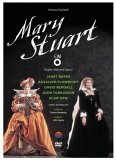 Mary Stuart | DVD | (30/05/2005)
from £24.28
| Saving you £-6.29 (-35.00%)
| RRP
Mary Stuart | DVD | (30/05/2005)
from £24.28
| Saving you £-6.29 (-35.00%)
| RRP This famous production of Donizetti's Mary Stuart was one of English National Opera's most memorable from the 1980's. Dame Janet Baker chose the title role of Donizetti's Scottish queen for her farewell to the London operatic stage in 1982. It was a triumph for Dame Janet in one of the most rewarding of operatic roles. As Mary she displays her full range as a great singing actress at times imperious and confrontational yet during the quieter reflective moments intensely moving. H
 Parsifal - The Search For The Grail | DVD | (11/01/2004)
from £7.66
| Saving you £13.59 (212.34%)
| RRP
Parsifal - The Search For The Grail | DVD | (11/01/2004)
from £7.66
| Saving you £13.59 (212.34%)
| RRP Parsifal: The Search for the Grail is a documentary that sets Wagner's last opera in its cultural context, tracing the history of the Grail myth back to the Middle Ages, and arguing that any specifically Christian myth goes back no further than that. It acknowledges that Parsifal is Wagner's most problematic opera, as well as one of his greatest, and gives chapter and verse for its role in creating the culturally respectable anti-Semitism that led to the Holocaust, as well as discussing other issues like its profound, though eloquently expressed, misogyny. At the same time, it makes what case is possible for the non-aesthetic defence--all of the above is true, and yet it is also an opera about learning compassion, at once poisonous and healing. Placido Domingo is the narrator, taking us through chats with talking heads that range from theologian Karen Armstrong to members of the Wagner family and film clips that range from Monty Python and Indiana Jones to Ingmar Bergman's The Seventh Seal. He also performs the role in a variety of extracts conducted by Valery Gergiev at the Kirov Opera, reminding us of just how viscerally impressive and lyrically beautiful late Wagner can be. On the DVD: The Search for the Grail is presented in old TV standard 4:3 ration with only PCM stereo sound. It comes equipped with a useful set of chapter headings and with subtitles in English, French, German and Spanish. --Roz Kaveney
 Mozart: Die Zauberflote (The Magic Flute) -- Ludwigsburg/Gonnenwein | DVD | (20/04/2001)
from £16.99
| Saving you £8.00 (47.09%)
| RRP
Mozart: Die Zauberflote (The Magic Flute) -- Ludwigsburg/Gonnenwein | DVD | (20/04/2001)
from £16.99
| Saving you £8.00 (47.09%)
| RRP In Die Zauberflöte, Mozart and his librettist Schikaneder brought off an extraordinary feat, uniting two seemingly unrelated theatrical genres--pantomime and straight play. The first is represented by the comic antics of the birdcatcher, Papageno, the second in a series of rituals through which a Prince and his lady pass in search of true love. This production from the Ludwigsburger Festspiele in 1992 in a minimalist staging by Axel Manthey with sets and costumes by him and Alexander Lintl, offers a clearly delineated path through a sophisticated and worldly plot that can be bewildering on first acquaintance. Claps of thunder herald evil in the presence of the Queen of the Night and Monostatos, while a white dove introduces Papageno and a larger one carries the three boys who lead the couple on their journey of enlightenment. Their departure in silhouette makes a touching finale to Act One. But no opera production in recent years seems to eschew some whim or trendy idea of the producer: here we have Sarastro's priests with shaved heads, the three boys dressed for a school sports day and a Papageno kitted out in knickerbockers who one fears might break into "I love to go a-wandering a knapsack on my back". Much more stylish are the Three Ladies, emissaries of the Queen of the Night, shapely figures in their striking royal blue and red dresses. The musical direction is in the safe hands of Wolfgang Gonnenwein who favours the occasional swift tempo as in the "March" to Act Two. The cast includes one exceptional singer, the soprano Ulrike Sonntag as Pamina, happily partnered by Deon Van Der Walt as Tamino. Thomas Mohr is the characterful Papageno and Andrea Frei as the Queen of the Night makes good the coloratura runs of her fiendishly difficult arias, though sounds less secure in her slow music. As Sarastro, Cornelius Hauptmann makes up for some wooden acting with his sonorous bass. One takes away from watching this production a renewed admiration for Mozart and his librettist for an opera that, in its mixture of spoken dialogue and musical numbers, anticipates by 150 years the musical shows of Rodgers and Hammerstein. --Adrian Edwards
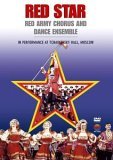 Red Star Red Army Chorus And Dance Ensemble | DVD | (24/04/2006)
from £15.95
| Saving you £2.04 (11.30%)
| RRP
Red Star Red Army Chorus And Dance Ensemble | DVD | (24/04/2006)
from £15.95
| Saving you £2.04 (11.30%)
| RRP This concert given by the magnificent Russian troupe the Red Star Red Army Chorus and Dance Ensemble was recorded at the Tchaikovsky Hall in Moscow prior to a nationwide tour of the United States in the autumn of 1992. The 100-strong Ensemble was first formed within the USSR armed forces in 1977 performing concerts primarily for the army. Their repertoire ranges from popular folk tunes and songs of battle from all corners of the former Soviet Union to spectacular Cossack dancing and includes Glinka's Patriotic Song and Kamarinskaya Rimsky- Korsakov's Flight of the Bumblebee and folk songs Kalinka Dark Eyes A Birch Tree Stood in the Meadow Happy Girl and Seven Sons-in-Law. All are performed with energy enthusiasm and patriotic fervour.

Please wait. Loading...
This site uses cookies.
More details in our privacy policy